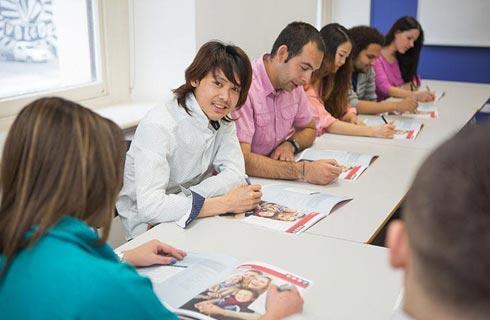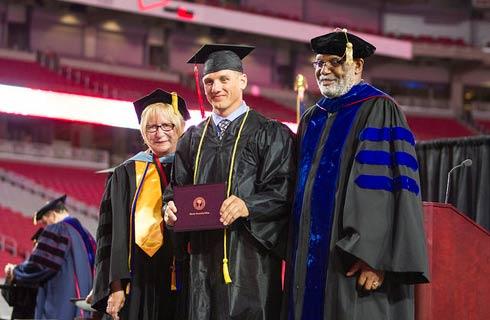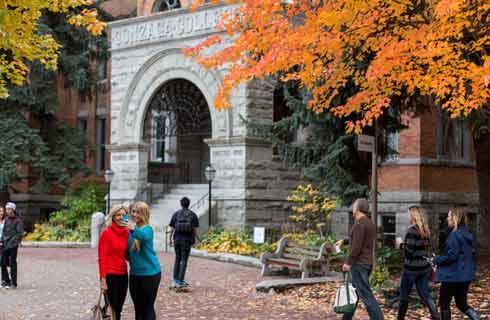- IDP China>
- 课程库>
- 建筑与规划>
- 建筑学与建筑 >
- 建筑与城市环境>
- MEng (Hons) Architecture and Environmental Design - University of Nottingham International College
荣誉(荣誉)建筑与环境设计-诺丁汉大学国际学院
MEng (Hons) Architecture and Environmental Design - University of Nottingham International College

学历文凭
Undergraduate Masters

专业院系

开学时间

课程时长

课程学费

国际学生入学条件
IDP—雅思考试联合主办方

雅思考试总分
6.5
- 雅思总分:6.5
- 托福网考总分:87
- 托福笔试总分:160
- 其他语言考试:PTE Academic 62 (minimum 55)
CRICOS代码: K230
申请截止日期: 请与IDP联系 以获取详细信息。
课程简介
The MEng provides an education in architecture with an engineering specialisation in the design of environmental systems for buildings. The course is recognised by the Architects Registration Board (ARB) and the Royal Institute of British Architects (RIBA) for exemption from the Part One professional examination, and by the Chartered Institution of Building Services Engineers (CIBSE) as a route to Chartered Engineer status. For those wishing to become professional architects, the MEng course is followed by one year's supervised professional experience before embarking on the two-year MArch Architecture (ARB/RIBA Part II) (see MArch Architecture (ARB/RIBA Part II) for further details) and one further year's professional experience culminating in a Part Three exam.<br><br>This year is structured around a core studio module that develops key design skills and techniques. Supporting modules cover fundamental ideas and concepts relating to environmental design, construction, structural design, and architectural theory. The year also introduces mathematical tools that support the design of environmentally responsible building systems. You will study modules that explore the concepts behind the active and passive systems used to provide healthy, comfortable conditions for building occupants. The design studio serves as a forum to explore the application of these ideas and material covered in structures, construction and architectural history. Studio projects offered in the third year seek to extend your ability to tackle briefs for more complex building types. These are linked to environmental systems modules that provide material to inform this work. Independent research skills are nurtured through completion of a dissertation that allows you to develop a specialism in a relevant area of your own choice. Optional foundation year, Optional year abroad
相关申请
 预科
预科 奖学金
奖学金 实习机会
实习机会 在校学习
在校学习 跨境学习
跨境学习 校园授课-线上开始
校园授课-线上开始 在线/远程学习
在线/远程学习
开学时间&学费
学费信息仅供参考,请与IDP联系以获取详细信息
| 开学时间 | 时长 | 学费 | 地点 |
|---|---|---|---|
| 暂无 | 暂无 | 暂无 | 暂无 |
本校相关课程

强化英语-利物浦
学历文凭
English Language
开学日期
课程费用总额


硕士预科课程-布莱顿大学国际学院
学历文凭
Foundation for Postgraduate
开学日期
课程费用总额


硕士预科课程
学历文凭
Foundation for Postgraduate
开学日期
课程费用总额


计算机基础证书-布莱顿大学国际学院
学历文凭
Foundation for Undergraduate
开学日期
课程费用总额


商业基础证书
学历文凭
Foundation for Undergraduate
开学日期
课程费用总额


商业基础证书
学历文凭
Foundation for Undergraduate
开学日期
课程费用总额

其他相关课程

Bachelor of Interior Design (Commercial)
 比利·布鲁设计学院
比利·布鲁设计学院学历文凭
Bachelor Degree
开学日期
课程费用总额


规划硕士(城市设计)/景观建筑硕士
 阿德莱德大学
阿德莱德大学学历文凭
Masters Degree (Coursework)
开学日期
课程费用总额


城市和区域规划硕士
 堪培拉大学
堪培拉大学泰晤士高等教育世界大学排名:470
学历文凭
Masters Degree (Coursework)
开学日期
课程费用总额


室内建筑学士
 堪培拉大学
堪培拉大学泰晤士高等教育世界大学排名:470
学历文凭
Bachelor Degree
开学日期
课程费用总额


城市和区域规划硕士-课程
 西澳大学
西澳大学学历文凭
Masters Degree (Coursework)
开学日期
课程费用总额


室内建筑设计学士学位
 悉尼科技大学
悉尼科技大学学历文凭
Bachelor Degree
开学日期
课程费用总额









 英国
英国
